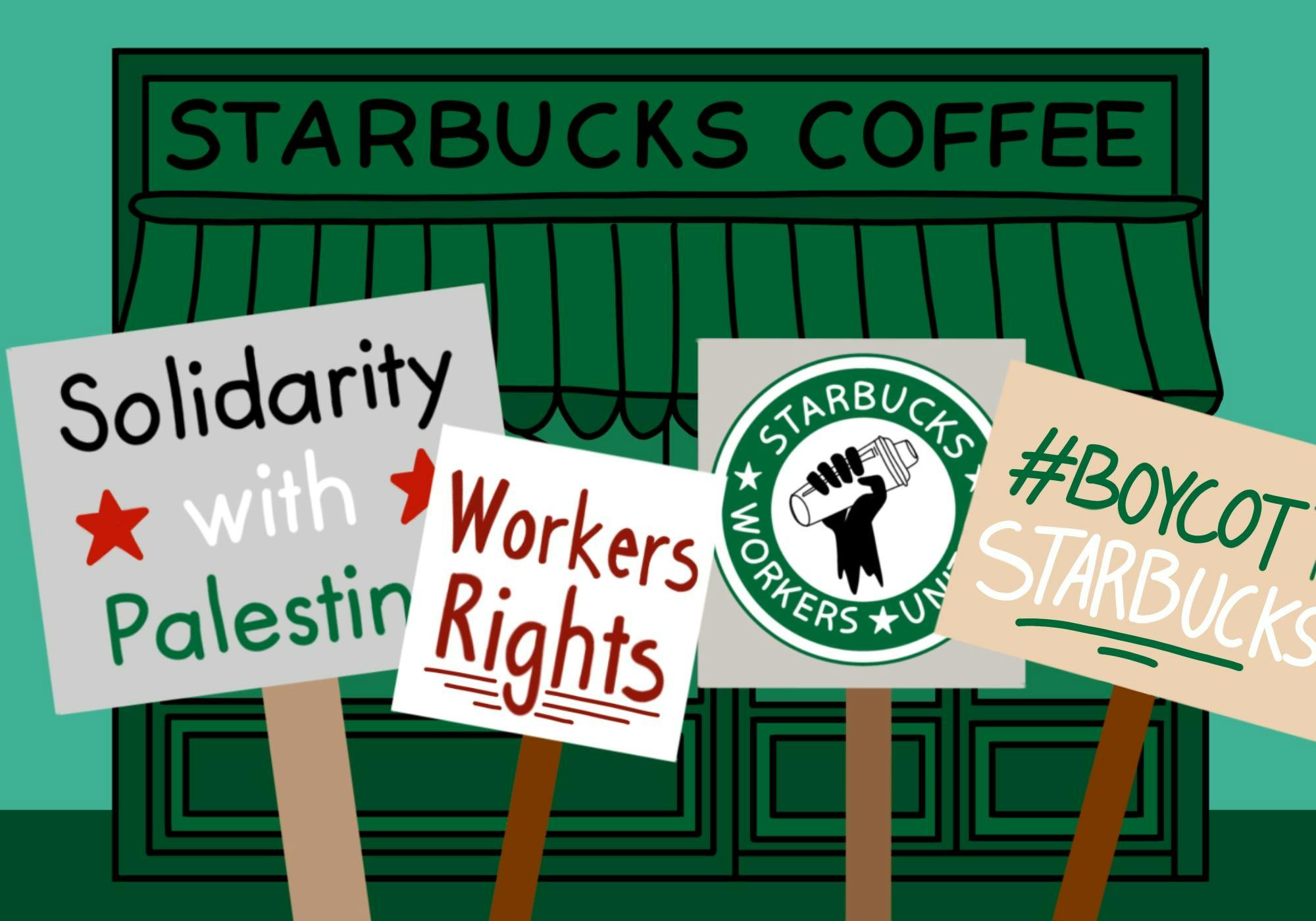Natural disasters stemming from climate change, the Israel-Hamas conflict, the overturning of Roe v. Wade and many other issues have set the stage for activist groups to fight for their views to be recognized.
However, what about those who would like to protest, but can’t? What about Starbucks baristas who disapprove of the company’s practices but must stick to their 9-5 job, aspiring environmentalists who can’t afford an electric vehicle and those that can’t attend a march because they’re working to feed their families?
According to Michigan State University Sociology Professor and activist Dr. Stephen Gasteyer, social and demographic availability prevent certain people from being the activists they might aspire to be.
“It’s the idea that some people are more available than others,” Gasteyer said. “You’re less likely to go out to join the protest on Palestinian rights or against the genocide in Gaza if you’re working 40 hours a week and have a dependent at home. You’ve just got too much on your plate to actually be available.”
On the other hand, the risks of engaging in activism for others are not as abundant or prevalent. Put simply, Gasteyer said, some people have the means to be an activist.
“Say a movement takes a more militant step, and there’s civil disobedience, and (protesters) decide to get arrested in front of the Hannah Administration Building,” Gasteyer said. “The people who are likely to decide that they are available to be arrested are those who, even if they are working 20 hours a week, don’t count on those 20 hours to stay alive or don’t have to get home and make sure their six-year-old eats dinner. It’s that kind of demographic availability that makes people more or less available to do this kind of work.”
For Gasteyer, the absence of social availability is not just something he has studied; at certain points in his life, he’s lived it.
“I can remember my third year in college, I was active in the anti-apartheid campaigns,” Gasteyer said. “I lived in Washington D.C. and there were daily protests and civil disobedience in front of the South African embassy. This was over Christmas break, and I couldn’t attend because I had to work."
Gasteyer recalled resenting his workplace because he wasn't available to go to the embassy. Looking at the literature, he said, that’s to be expected.
Environmental studies and sustainability sophomore Kirah Fuller has participated in various marches and rallies, and even had an activism blog. Fuller recognized that she’s positioned a certain way in society to better allow her to do work she finds important.
“At least for us, technology is a privilege that I always think of,” Fuller said. “We’re able to spread information more easily. I was able to have a blog because of technology and I was able to post on social media about certain activist things because I have a phone and laptop. That comes with privilege.
Even coming to college and pursuing her education in sustainability is a privilege, Fuller said. She added that acknowledging this is a responsibility that comes with both activism and privilege.
In terms of including members with varying opinions or interest levels, Gasteyer said movement leaders have to determine how inclusive or exclusive they want their protest to be— and what it might do for their message.
“The rhetoric can either be inclusionary or exclusionary,” Gasteyer said. “Activists have to make a decision about how inviting they want to be to multiple points of view within their movement at the risk of totally watering down their message or only allowing fairly narrow points of view which will exclude people who don’t want to be that militant.”
Additionally, Fuller said there can be layers to advocacy.
“I think a lot of people are scared to voice their advocacy strongly because maybe it will make them a radicalist,” Fuller said. "It’s okay if it does, but you don’t really even have to be radical to protest for something. As long as you believe in it, if you want to protest, then I think at the end of the day it’s going to make some sort of difference.”
Fuller said the intersectionality between different activist groups cannot be ignored. In fact, she said, it can help promote connection between different movements, ultimately bolstering each other's messages.
“I think we need to realize that all different types of activism have a connection,” Fuller said. "We’re going to advocate for people, as well as different groups of people that live on the planet. They all have a connection. When that realization is put out there, it will definitely help make activism more inclusive.”
Fuller noted that a lot of the faces of movements can be “very white” and sometimes aren’t representative of those actually affected.
“I think a lot of the people who are directly affected aren’t able to have a say, and that kind of goes back to the privilege aspect of it,” Fuller said. “It can be unintentional, but inherently exclusionary. A lot of the voices that get shown—whether it’s in the media or online—are the people who have resources. It’s not the underprivileged (or) poor people who actually have to live in certain conditions that are being created for them.”
Support student media!
Please consider donating to The State News and help fund the future of journalism.
Regardless of the mounting challenges that accompany activist movements, both Gasteyer and Fuller believe advocacy is necessary.
“It’s important to advocate in any way you can—whether it’s small or large—to the best of your capabilities because at the end of the day, doing something is better than doing nothing,” Fuller said. “I think that’s something I’ve learned too. You don’t have to solve the problems of the world. You just have to care.”
Discussion
Share and discuss “The 'privilege of protest': MSU experts discuss the accessibility of activism” on social media.







